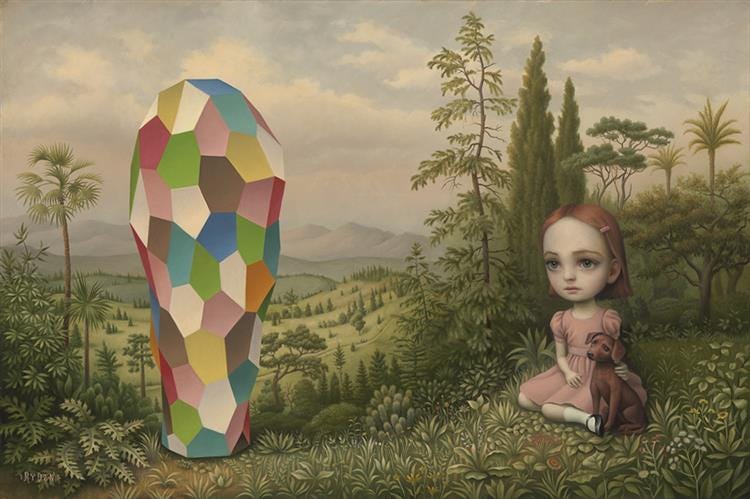experiencing
integrating my inner and outer worlds
It’s no accident that the word experience contains the root per, meaning “to try, risk,” from the Latin experiri, which gave us experiment, empirical, and peril. Experience is full of risk.
I’m coming off the high of an extremely social weekend. I used to time-box social activities by getting a rough sense, before heading out, of when the event will wrap up and when I’ll be home. This is especially true if the event has a lot of unknowns. For example, if the people, activities or environment is unfamiliar, I need a lot more fuel in the tank than I would grabbing dinner with a close friend, which is why knowing in advance when I’ll be able to call it a day is comforting.
This weekend, sitting on picnic blankets with twenty other people, feeling the sun against my skin, I had the keen awareness that I didn’t want to be anywhere but in that moment. Even when I didn’t have anything to contribute to the conversation, I was still enjoying myself. I think a measure of group psychological safety is whether it’s relaxing to be silent (you feel accepted by default) or whether you feel pressured to say something (you have to earn your acceptance).
Even with the intermittent showers, even when it turned unexpectedly smoggy and chilly after sunset, I powered through, thanks in large part to our host lending me a pair of pants. A year ago, feeling cold and underdressed would’ve been my excuse to bail (I’d live in any climate where I can wear shorts every day). But I think it’s important to embrace some amount of physical discomfort, as long as it’s not harmful. Discomfort jolts our senses out of habitual complacency, making everything appear sharper, more vivid.
Later in the evening, I came upon a fork in the road: go on a detour for food, go home or continue onward to A’s apartment for drinks and more conversation. At first I was tempted to “exit the game” because it had been a long day, but halfway down the block, I doubled back and chose to continue the adventure. My gut was telling me I still had some social batteries left, and there were deeper connections to be made in a smaller, intimate setting. My instinct turned out to be right.
Two hours later, I was truly drained in the best possible way. I felt spiritually full. Had I continued on, I’m sure I would’ve discovered even more “treasures,” but I didn’t have the mental and emotional capacity for more, and that was O.K.
What I’ve observed is when I resist my urge to time-box my participation in a social event, when I follow my curiosity and push myself a little beyond what’s comfortable, unexpected things happen: new connections are made, both with other people and within my own inner world. Time spent with other people makes the time I spend alone more vibrant because I have so much new material to work with in order to make sense of the world.
experience (n.)
late 14c., "observation as the source of knowledge; actual observation; an event which has affected one," from Old French esperience "experiment, proof, experience" (13c.), from Latin experientia "a trial, proof, experiment; knowledge gained by repeated trials.”
— etymonline.com
I used to think gaining experience was about putting yourself out there, trying new things, being hyper extraverted. But that’s only part of the equation. Experience requires introspection. Attending a bunch of social gatherings without taking time to rest and reflect means you’re probably not getting the most juice out of your fun. It’s just pure stimuli. You’re not fully integrating your experiences into your life and forming observations and theories and new ideas.
For example, I had a few personal revelations this weekend:
My most childlike state (when I’m having the most fun) is focusing on everything around me rather than myself. This is true when I’m writing fiction and when I’m in the company of others.
Not standing out feels safe by default (related to this, I’m sure). I also have an aversion to bodily attention. Some people are comfortable with it, but unless I’m attracted to someone, I don’t like being stared at. Occasional eye contact is fine.
I’m very attuned to other people’s needs and try to be a good friend and partner. I expect the same in return and feel hurt when others aren’t as considerate and behave in ways that are selfish/neglectful.
Ideally, our inner and outer experiences should enrich each other, and we have to self-regulate how much of each we dip into and when. Knowing my tendency to retreat into my inner world, I have to make a conscious effort to push myself in the other direction, maybe beyond a point that feels totally natural, but a little exciting, a little perilous. We never know what we’ll unearth about ourselves or others.



> I used to think gaining experience was about putting yourself out there, trying new things, being hyper extraverted. But that’s only part of the equation. Experience requires introspection.
been thinking about the same thing! FOMO compels us to say "yes" to anything and everything, but in truth if we were really out and about all the time, always going on trips / adventures / forming special memories, I have a suspicion that that would become its own kind of monotony and dreariness. the quiet moments of solitude make the adventure that much more nourishing.